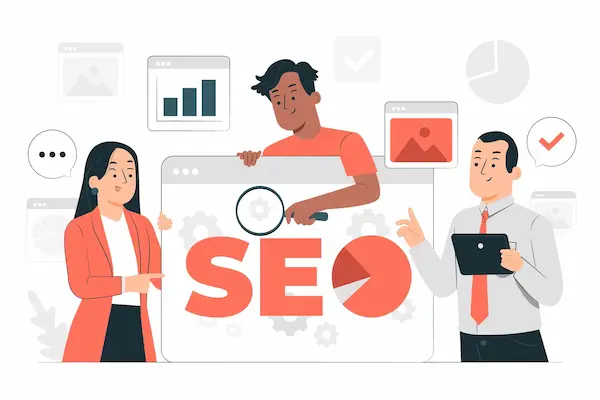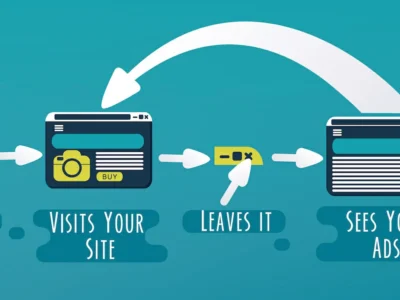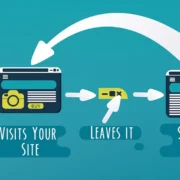Every few years, the digital marketing world buzzes with a recurring question: “Is SEO dead?” With the relentless evolution of search engines, the rising tide of social media platforms, and the emergence of AI-driven search tools, it’s easy to wonder if SEO has finally reached its expiration date. However, before you abandon your SEO efforts, it’s worth taking a closer look at the realities of modern search engine optimisation and why it remains a cornerstone of online success.
The Evolution of SEO: Change Is Not Demise
SEO—Search Engine Optimisation—has never been static. In its early days, ranking on Google was often a matter of keyword stuffing, basic meta tags, and link quantity over quality. Today, the landscape is almost unrecognisable. Search engines have become vastly more sophisticated, prioritising user intent, content relevance, and on-page experience over simple tricks and shortcuts.
Google’s constant algorithm updates, from Panda and Penguin to BERT and now AI-powered enhancements, have forced marketers to adapt. These changes have given rise to the myth that SEO is “dead” every time a major update rolls out. In truth, SEO is not dead—it’s simply evolving. Outdated tactics may no longer work, but genuine, value-driven optimisation is more alive than ever.
Why SEO Remains Vital in 2025
Despite all the changes, the fundamental purpose of SEO endures: to connect users with the content they seek. Consider these compelling reasons why SEO still matters:
- Search Engines Remain Primary Gateways: Despite the growth of social media platforms and alternative search sources, Google and other search engines continue to be the starting point for most online experiences. Billions of queries are processed daily—SEO ensures you’re discoverable where your audience is looking.
- Organic Search Drives Credibility: Users trust organic results more than paid ads. Ranking high signals authority and relevance, making visitors more likely to engage with your brand.
- Long-term ROI: While paid advertising can yield quick results, SEO investments compound over time. Well-optimised content can deliver consistent organic traffic for months or even years.
- Voice and Visual Search: The rise of voice assistants and image-based search has broadened the spectrum of SEO. Structured data, conversational keywords, and multimedia optimisation are now integral to visibility.
- User Experience: Modern SEO encompasses website speed, mobile responsiveness, and accessibility, all factors that enhance the user journey and are rewarded by search algorithms.
SEO in an Era of AI and Social Media
It’s true—search isn’t what it used to be. AI-driven chatbots, social media discoverability, and predictive search are reshaping how people find information. But rather than rendering SEO obsolete, these developments are expanding what SEO means.
AI tools thrive on high-quality, structured content. Successful SEO now incorporates natural language processing, semantic search, and intent-driven optimisation. Social media platforms, meanwhile, are excellent for brand awareness but often act as referral channels, pushing users toward search engines for deeper research and decision-making.
In other words, SEO is no longer just about keywords on a webpage—it’s about building a digital ecosystem where your brand is discoverable, authoritative, and trustworthy across channels.
The New Rules of Effective SEO
If you think SEO isn’t working, perhaps it’s your approach that needs a refresh. Dave Harper from Best Freelance SEO says here’s what modern SEO looks like:
- Content Quality Over Quantity: Focus on creating in-depth, helpful resources that genuinely address user needs.
- Technical Excellence: Ensure your site is fast, mobile-friendly, and well-structured for both users and search engines.
- Intent-Driven Keyword Research: Understand why people search, not just what they type, and design your content accordingly.
- Authority Building: Cultivate reputable backlinks and demonstrate expertise in your field.
- Continuous Adaptation: Stay updated with algorithm changes, emerging trends, and evolving user behaviour.
Conclusion: Don’t Write Off SEO Yet
The digital landscape will never stop shifting. Instead of asking, “Is SEO dead?” the better question is, “How should my SEO evolve?” Search engine optimisation isn’t just alive—it’s thriving for those who understand and embrace its new rules. Abandoning SEO now would mean missing out on valuable opportunities to connect with your audience and grow your online presence.
Keep learning, keep adapting, and remember: SEO isn’t dead. It’s just getting smarter.












Comments